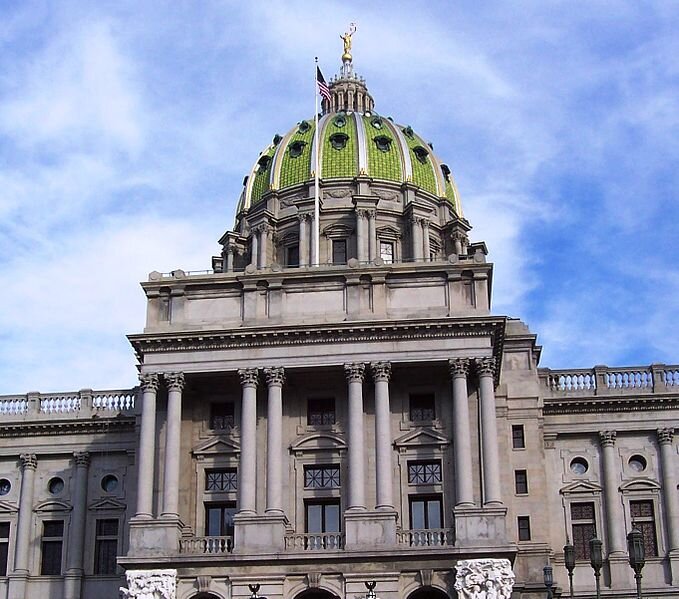
With very little surprise, our elected officials are at it again. This time the legislative argument has gone to the courts for clarification. The General Assembly, which is currently Republican-controlled has passed a resolution that would eliminate the emergency disaster declaration (in response to COVID-19) that led to the closure of “non-life-sustaining” businesses, bans on large gatherings, and ordered that people stay at home. It is being argued that under Title 35 Section 7301 of state code that once the legislature has passed a resolution to terminate a disaster emergency, the Governor must issue an executive order ending such emergency.
The Governor has not issued an order doing so. Defenders of the Governor argue that under Article 3 Section 9 of the state’s Constitution, for a resolution to take effect it must require the Governor’s signature or approval by a two-thirds majority. Neither of which has happened as of this moment and so the emergency order still stands. Except that the Senate Republicans have filed a petition with the Commonwealth Court to get a ruling on which text controls in such a moment: do we follow the rules of Title 35 or Article 3.
As important as the Court’s holding will be in this case, this blog post does not go into details over the party’s arguments. But rather, it discusses the potential outcomes if the emergency order is lifted at this moment in time.
Importantly to note, under Title 35 Pa C.S. §7301(b), an emergency order gives the Governor the power to issue, amend, and rescind executive orders, proclamations, and regulations. There are many protections issued by the Governor that would end if the emergency order were to be removed:
Unemployment Benefits would drastically change. Previously a claimant would not be eligible for benefits during their first week of unemployment. Additionally, a claimant would have to show proof that they are currently searching and applying for work to be eligible for the benefit. Under the emergency order, the “waiting week,” and the work search and registration requirements have been suspended, meaning that once a person was terminated from work during the emergency declaration, they could potentially sign up for unemployment benefits that same day.
Meal eligibility waiver for children and low-income households would come to an end. The Department of Education received approval to allow K-12 schools, who closed due to COVID-19, to serve meals offsite to students. These meals and snacks are made available at no cost to low-income children. If the order were lifted, this approval would also expire, potentially leaving many families without the very important service of providing food to their children.
Moratoriums on mortgage foreclosure and evictions in the state would come to an end. The Governor extended the freeze on evictions and foreclosures until July 10. However, if this emergency declaration were to be removed then with it goes the moratorium on foreclosure and evictions, putting vulnerable Pennsylvania’s at risk of becoming homeless. This coupled with a challenging job market will only lead to unnecessary hardships.
Utility assistance for thousands of families and individuals would end, potentially leaving people without water or electricity. The Public Utility Commission (PUC) Chairman signed an order that would remain in place for as long as the Governor’s emergency order was active. The PUC’s order places a moratorium on any termination on utility services that fall under the PUC’s jurisdiction. If the emergency order is lifted, so would the utility termination moratorium.
Health care services would see large changes that could increase the public’s risk of getting sick. The emergency order allowed telehealth and other health care services delivered by out-of-state providers to offer care to Pennsylvanians. This benefit would come to an end. Hospitals and alternative care sites would no longer be able to add capacity or repurpose facilities (i.e., beds) without having to abide by a 60-day notice requirement. The emergency order also placed a suspension on license renewal and training for health care professionals, childcare workers, direct care workers, direct support professionals, among other professional groups who provide life-sustaining services to our children, seniors, and vulnerable residents. This too would expire, meaning all of these workers would be faced with the option of not returning to work until those credentials could be renewed or trainings completed and the option of returning to work with the understanding that they are practicing out of compliance with Pennsylvania law and regulation. Doing so would open themselves up to personal liability.
No matter what the court decides, it is important that we understand why these protections have been set in place. Last month, Pennsylvania reported almost 850,000 unemployed people. Many of which now without a savings account if they had one pre-crisis and not sure where to turn next. It is important to get our economy back up and running., It is also important to get those who are unemployed back working. However, we must also understand that removing an emergency order could also remove the very protections set in place for who, many would claim, are experiencing a real emergency. The General Assembly seems to understand this, but it almost looks as if they want everything to magically turn back to normal by way of removing the only safety net that people have in such an uncertain time.
